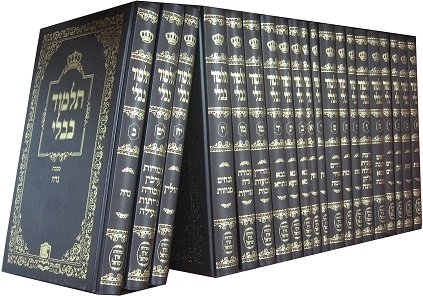- Home
- Krav Maga Blog
- Krav Instructors
- Train in Israel
- Tour Train Israel
- Krav Shop
- DVD
- Kickboxing
- IKI Near Me
- Seminars
- IKI Membership
- On-Line Training
- Krav Maga Training
- Testimonials
- History Krav Maga
- Instructors Page
- Past Blogs
- Spanish
- Italian
- Certification
- Contact
- Holland Seminar
- Vienna Seminar
- Poland Seminar
- Italy Seminar
- Belt Requirements
A Right to Your Opinion?
By Moshe Katz
CEO
Israeli Krav International
May 4, 2018, Airport Business lounge, Ben Gurion airport, Israel

The Talmud, what does it take to master these books?
I was in college and had just published an article in the Jewish students' newspaper. A woman wrote in and voiced her opinion, a Liberal opinion directly opposite to mine. She argued that the discussion is open to all: just as Rabbi Akiva and Rabbi Hillel (classic rabbis of the Talmud from nearly 2,000 years ago) had their opinions, so did she.
Wow. Did she know that Rabbi Akiva, at the age of forty, dropped all his other obligations and devoted himself to study, night and day, for the next twenty years? Did she know how Hillel suffered financially in order to study the Talmud?
These men had earned their right to their opinions. They spoke from knowledge.
There is an expression in English "Everyone has a right to their opinion". This is quoted as if it were holy scripture, as if spoken by God himself; none may dare disagree.
I disagree.
In English we have the words opinion, and knowledge. There is no linguistic connection between these words.
In Hebrew we have the word De'ah. This means opinion, but it also means Knowledge. The two are one and the same and are closely related.
Not everyone has a right to their opinion, only those who have earned it. Imagine me entering a hospital as brain surgery is being performed, I offer a suggestion.
Can you imagine the response? But yet that female student at UCLA all those years ago felt that just as Hillel and Rabbi Akiva were entitled to their opinion, so was she!
So why can't I offer my opinion on brain surgery? Or on atomic energy?
I cannot offer an opinion on these topics and if I did that should be appropriately dismissed as I have not studied these fields. If there is no De'ah, knowledge, there is also no De'ah, opinion.
No, not everyone has a right to their opinion, you have to earn that right. Otherwise, it is best to follow another saying; better to remain silent and be thought a fool then to open your mouth and remove all doubt.
In the Bible it is written "Even a fool who remains silent will be thought wise" (Proverbs) But the Hebrew verse is also interpreted by some scholars, as "He who can silence the fool is indeed wise" For he has done a great thing. (Rabbi David Altshuller of Prague, 1687) Thus not everyone has a right to their opinion and he who can shut up the one who expresses a foolish opinion is considered to be the wise one.
גַּ֤ם אֱוִ֣יל מַ֭חֲרִישׁ חָכָ֣ם יֵחָשֵׁ֑ב
Visit our other site
Israeli Krav International.com